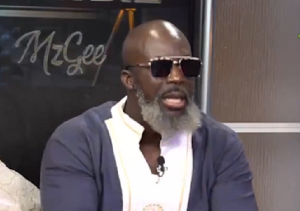Pastor Benjamin Saah of the Psychology Department of the Cape Coast Teaching Hospital (CCTH), has stated that depression could complicate the management of kidney disease, but was often overlooked.
He said living with chronic kidney disease could take a toll not only on the physical, but also the emotional and mental health of patients and admonished all not to complicate their situations with derogatory comments.
However, he noted that the treatment meted out to some of the patients by some relatives and health workers could plunge them into the state of depression.
“I will advise relatives and health workers to be mindful of their language because their words can kill them early, he said.
Mr Saah made the observation at a Kidney Dialogue organised by YWC Kidney Foundation in collaboration with the Ridge Royal Hotel to educate the public on the disease.
The dialogue which was on the theme “Kidney Health for Everyone” was aimed at creating awareness about the kidney disease and also to encourage people to get screened to know their status.
Mr Saah urged families to show love and compassion, give words of encouragement and take good care of anyone diagnosed with kidney or any other chronic disease.
He also urged health professionals to be mindful of how they communicated information to patients and their relatives as it could scare relatives and even force patients to commit suicide.
He said many relatives have had to abandon their patients at the hospitals because of the manner it was communicated to them.
Speaking on the preventive measures of kidney diseases, Dr Rosemary Awindagi, a Physician Specialist at the Dialysis Units of CCTH, advised the general public to desist from consuming too much unprescribed herbal medication, which become toxic to the body.
“Unprescribed herbal medicine is not good for your kidney and the liver as well. When you are sick, seek professional advice, do not take in things that are unprescribed,” he stressed.
Dr Awindagi advised the public to adhere to annual screening where medical practitioners would examine and quickly treat any disease found.
Mrs Elsie Hayford, a Nutritionist at the CCTH, advised that people ate adequately and in the right quantities saying “Let food be your medicine”.
She said eating well could reduce the risk of getting certain kinds of diseases such as Hypertension and Diabetes, which could make one prone to kidney disease.
She encouraged the public to exercise regularly, follow healthy eating steps to prevent contracting kidney and other chronic diseases.
Mrs Irene Jacobs, Deputy Director of Nursing Services, Internal Medicine at the CCTH, encouraged Ghanaians to develop the habit of giving to support kidney patients.
Mr Thomas Cann, a Journalist living with the disease shared his story about how he had managed an end stage kidney disease for about eight years and advocated for more support for kidney patients.
Health News of Sunday, 22 March 2020
Source: GNA

















